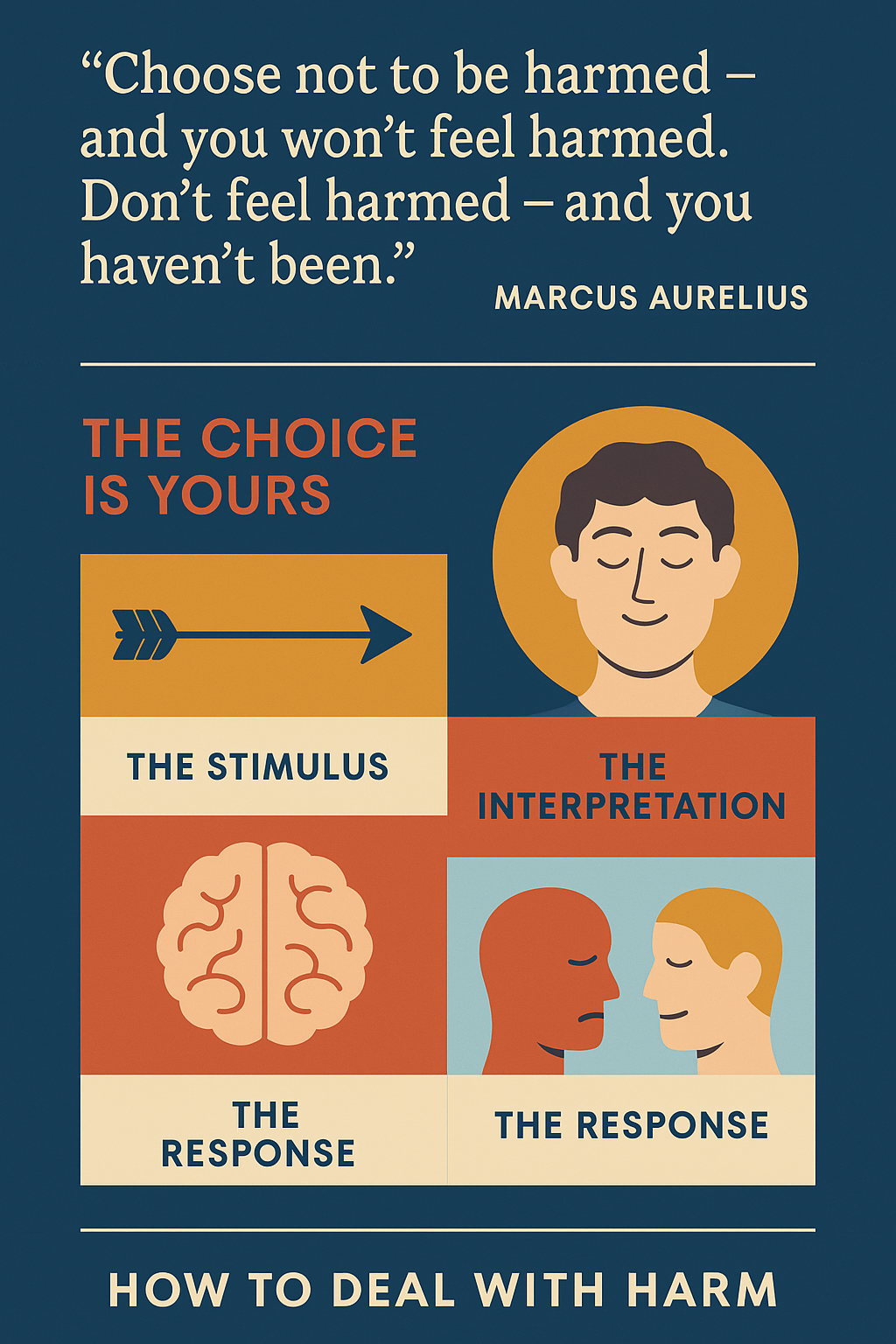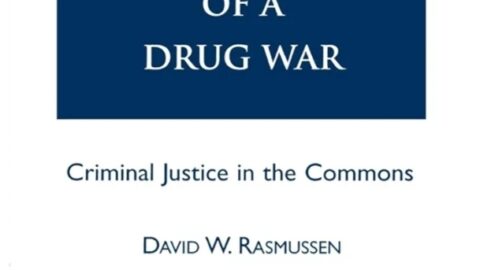In Meditations, Marcus Aurelius, the Stoic Roman emperor, offers a timeless lesson:
“Choose not to be harmed — and you won’t feel harmed. Don’t feel harmed — and you haven’t been.“
This deceptively simple statement carries profound implications about human perception, emotional resilience, and power over our own experiences. Let’s dive deeply into what it means, why it matters today, and how to live it practically.
The Core Meaning: Harm Is Perception-Driven
Marcus Aurelius proposes that external events don’t harm us — our interpretation of them does.
- Objective reality: Things happen — people insult, accidents occur, plans fail.
- Subjective interpretation: We decide if these events wound our spirit.
If we refuse to label an event as harmful, it loses its sting.
Thus, harm is not a material force; it is a mental judgment.
The Ancient Context: Stoicism’s View of Control
Marcus, like other Stoics, believed life could be divided into two realms:
- What we control: our thoughts, judgments, responses.
- What we don’t control: other people’s actions, external circumstances, natural events.
By mastering the first and accepting the second, a person attains true freedom.
The formula is simple: Your judgment = your reality.
Modern Applications: Emotional Sovereignty
In today’s chaotic world, Aurelius’ advice is more vital than ever:
- Social media criticism? Choose not to feel harmed.
- Career setback? Choose to see it as a lesson, not destruction.
- Betrayal? Recognize that only your judgment defines your wound.
Victimhood culture thrives when people externalize harm, handing over their emotional sovereignty. Aurelius invites us to reclaim it.
Physiological and Psychological Roots
Modern science supports this ancient wisdom:
- Cognitive Behavioral Therapy (CBT): Shows that thoughts shape emotions, not events themselves.
- Neurology: Our amygdala triggers fear responses, but the prefrontal cortex can reinterpret events rationally.
- Resilience research: Emotional toughness correlates with a sense of control over interpretation.
Marcus anticipated psychology by 2,000 years: interpretation is everything.
Why It’s Difficult: Ego and Identity
Our egos love to feel slighted because:
- It confirms our importance.
- It justifies anger, victimhood, self-righteousness.
Choosing not to be harmed requires killing the ego’s hunger for offense.
It demands a higher loyalty to truth, not feelings.
How to Practice “Not Feeling Harmed”
| Challenge | Reframe the Event | Mindset Response |
|---|---|---|
| Someone insults you | “Their words are not my reality.” | Stay serene and detached. |
| Failure or loss | “This is training for my character.” | Focus on growth. |
| Unfairness or injustice | “I choose my values, not circumstances.” | Act virtuously, without resentment. |
- Step 1: Notice your emotional reaction.
- Step 2: Pause — ask, “Is harm a choice here?”
- Step 3: Reframe the experience as neutral or empowering.
With practice, this becomes natural — and you become unstoppable.
Final Reflections: Freedom is an Inner Condition
Marcus Aurelius ruled the most powerful empire on earth, yet his real battle was against himself.
Victory for him wasn’t military conquest, but self-conquest.
The world will always produce slights, injustices, accidents, and losses.
But true harm only occurs with your consent.
Freedom begins the moment you choose your perception instead of reacting to conditions.
Or as Marcus might say:
“You are harmed the moment you believe you are harmed — and not a second before.”






